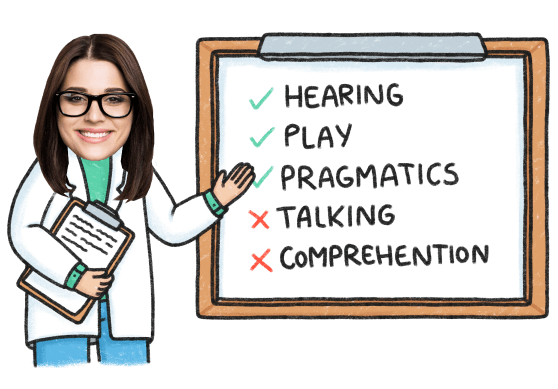5 Myths about Down Syndrome
Jan 15, 2022 There are a lot of misconceptions about individuals with Down Syndrome. This post will point out some of the most common myths and discuss the facts.
Since about 1 in 700 babies are born with Down syndrome, or trisomy 21, we don’t necessarily know a family with a child with the associated issues or developmental milestones. This blog presents 5 myths about Down syndrome and reacts to them from a firsthand perspective. We hope it helps everyone with early intervention and acceptance of these wonderful people.
Myth #1: Having a child with Down Syndrome is a HUGE burden on families
Fact: While it is true that an extra chromosome can bring more health concerns and slight developmental delays that will require a few more doctor appointments and therapies, kids with Down Syndrome have a variety of gifts and talents. Kids with Down Syndrome have unique personalities that add to the joy in their families. They benefit their families and communities with their personalities and talents. There is also a strong community of support for families of kids with Down Syndrome.
Boost Your Child’s Speech Development!
Improve language & communication skills with fun learning!

Individuals with Down Syndrome have unique personalities that add to the joy in their families.
Myth #2: Kids with Down Syndrome have severe developmental and intellectual delays.
Fact: Kids with Down Syndrome may have physical and cognitive delays, but they have the potential for great success in their communities when given the opportunity. IQ scores are not an adequate measurement of the abilities of an individual with Down Syndrome. They can achieve high proficiency in many areas not measured by an IQ test.
Myth #3: All people with Down Syndrome are the same.
Fact: When our son was born, we received a piece of wisdom that has stuck with us and proven true. Doctors told us, “The only thing someone with Down Syndrome has in common with another person with Down Syndrome is that they have an extra chromosome.”
Each kid with Down Syndrome is unique, with their own strengths and weaknesses, just like you and I. They will share more physical similarities with their own families than with others with Down Syndrome. Yes, they may share some characteristics, but not all people with Down Syndrome will have all the possible characteristics.
Myth #4: People with Down Syndrome are always happy and affectionate.
Fact: Even if it’s true that our son is more in tune with the needs of others and does laugh a lot, I can tell you firsthand that he’s not always happy and affectionate. He, and all individuals with Down Syndrome, experience and display a wide range of emotions, just like everyone else. They have diverse character traits and moods, just as you and I do.
Myth #5: Those with Down Syndrome are not able to live full, independent lives with meaning.
Fact: Many kids with Down Syndrome attend regular schools, in regular education classrooms, alongside their typically developing peers. In fact, research shows numerous benefits for those with Down Syndrome and their classmates. These include academic success and increased acceptance of differences (and more) when these kids are in class alongside their typically developing peers.
These young people also live semi-independently, go to prom, attend college, start businesses, gain employment in jobs that are meaningful to them, get married, self-advocate for themselves as public speakers at various conferences and political forums, as well as live full, beautiful lives. They truly are a benefit to society when given the opportunity to be active citizens in classrooms, workplaces, and communities.
As we work together to prove the myths that surround Down Syndrome as false, we can ease some of the fear that comes with a Down Syndrome diagnosis. When these myths are dispelled, the doors that can be opened to allow these individuals to reach their fullest potential will be innumerable.

